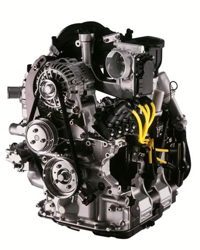U1099 Engine Trouble Code
Meaning of U1099 engine trouble code is a kind of network trouble code and U1099 code can be about replacing a broken oxygen sensor can eventually lead to a busted catalytic convertor which can cost upwards of $2,200. Taking your car into a shop will cost you around $210 depending on the car. However, an oxygen sensor is easy to replace on many cars and is usually detailed in the owner's manual. If you know where the sensor is, you only have to unclip the old sensor and replace it with a new one. Regardless of how you approach it, you should get this fixed right away.
U1099 Fault Symptoms :
|
If one of these reasons for U1099 code is occuring now you should check U1099 repair processes.
Now don't ask yourself; What should you do with U1099 code ? The solution is here : |
U1099 Possible Solution:

|
Disconnected, dirty or fouled spark plugs are common causes for engines that won't start. Spark plugs typically need to be replaced every season or 25 hours of use. You should also check that the spark plug gap is set properly. If your spark plugs look good, problems with your ignition system can also preventing a spark. These can range from a faulty spark plug lead, shorted kill switch or flywheel key damage. |
U1099 Code Meaning :
| U | 1 | 0 | 9 | 9 |
|---|---|---|---|---|
| OBD-II Diagnostic Network (U) Trouble Code For Engine | Fuel And Air Metering | Ambient Air Temperature Sensor Circuit Low | Crankshaft Position Sensor A Circuit Malfunction | Reverse Input Circuit |
Regarding the U1099 code, it would probably be worthwhile to carefully inspect the wire harness near the intake manifold bracket. This is done most easily from below the car in the area near the oil filter.
U1099 OBD-II Diagnostic Network (U) Trouble Code DescriptionU1099 engine trouble code is about Reverse Input Circuit.Main reason For U1099 CodeThe reason of U1099 OBD-II Engine Trouble Code is Ambient Air Temperature Sensor Circuit Low. |
U1099 DTCs may also be triggered by faults earlier down the line. For example, a dirty MAF sensor might be causing the car to overcompensate in its fuel-trim adjustments. As a result, oxygen sensors are likely to report fuel mixture problems.

